In a recent article, I discussed how cancer happens when wound healing process goes wrong.
In response to that article, my rockstar brother-in-law, Alexander Prokhorov (Sasha), commented that fasting has miraculous impact on combating cancer. From all what I had read till now during my research, I knew Sasha’s comment was not a casual one. There is already a huge pool of credible data from multiple research supporting role of fasting in prevention/treatment of cancer.
This post has been written to simplify learnings from all these evidences and see if fasting can help in our fight against cancer
Table of Contents
Inflammation Is the Spark That Ignites Cancer
In my previous post, I explained how wound healing process can get disrupted with age related inefficiencies and how a set of numerous wounds across the body can contribute to such disruption of wound healing process. These inefficiencies and wounds are result of inflammation. So, we need to understand inflammation if we are to understand cancer.
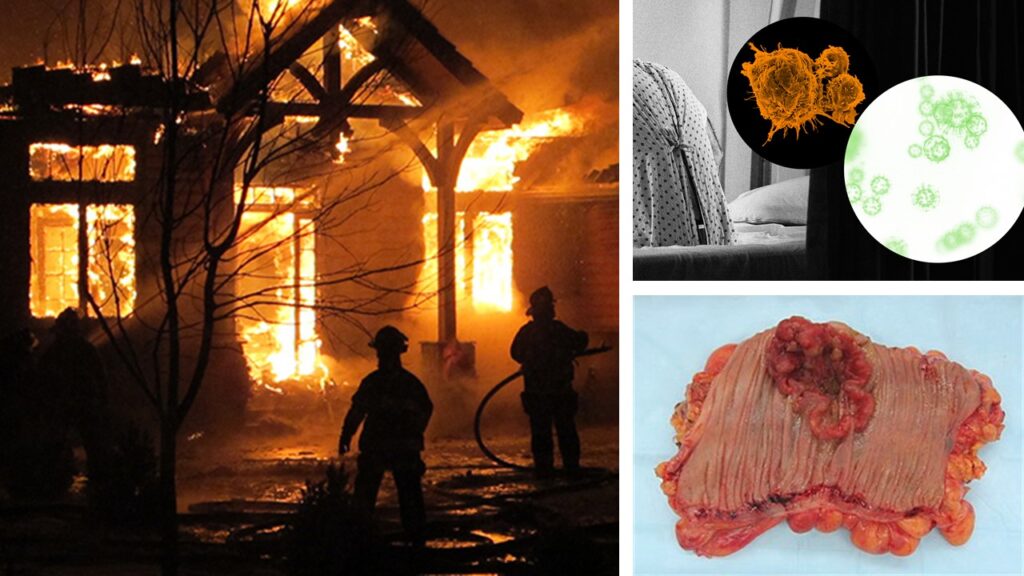
Each breath we take, each morsel of food we eat, each move we make- all generate a reaction that contributes to injury. We call this reaction as inflammation. Inflammation can be imagined as fire. Inflammation and the resultant damage gets repaired via our natural healing mechanisms. But with age, these healing mechanisms become inefficient. Thus, as body gets older and older, every time an inflammation occurs, some amount of this flame remains uncontrolled. And some amount of damage caused by this flame remains unrepaired. Each residual flame causes more damage. Each unrepaired damage further disables our ability to control inflammation. In short, as we keep aging, inflammation and damage due to this inflammation keep accumulating. (Read more about this in detail by clicking HERE.)
And this aging related accumulation of inflammation and damages keeps making the system prone to make errors during wound healing, thus increasing the chance of cancer development.
Fasting Can Tame Inflammation
As is evident from what we discussed, inflammation is bad. Inflammation predisposes us to cancer. There are now several studies from various parts of the world clearly showing that inflammation drives worsening of cancer and early death. And we also know from many studies that fasting significantly reduces inflammation. These studies have been conducted in wide range of models, including humans and the results clearly show that fasting, if practiced in a disciplined fashion, can control inflammation and the damage associated with inflammation. Based on these findings, I had written a detailed post explaining how fasting, if practiced frequently, can slow down aging by decreasing overall burden of inflammation. Please click HERE to understand the mechanisms.
If this is true, then Can Fasting Prevent Cancer? If this is true, then Can Fasting be used for Treating Cancer?
Body of Evidences

In 2009, scientists at University of Wisconsin published a landmark study evaluating role of caloric restriction in preventing cancer. This was a 20 year long study that started in 1989. Adult rhesus macaques (7 to 14 years old) were selected for this research. Rhesus macaques (Macaca mulatta) have an average lifespan of ~27 years in captivity and a maximal lifespan of ~40 years. These animals were divided into two groups. Group 1 received normal diet. Group 2 received 30% calorie restricted diet.
Like in humans, the incidence of cancer increases with age in rhesus monkeys. In this study, the scientists found that the incidence of cancer was reduced by 50% in Group 2 (undergoing caloric restriction) compared to that in Group 1 (normal diet). Even the incidence of cardiovascular disease was reduced by 50% in Group 2 compared to Group 1. Age-related diseases were detected in Group 1 (normal diet) at ~3 times the rate they were detected in Group 2 (undergoing caloric restriction).

Thus, fasting (via caloric restriction) can keep one biologically younger, thus reducing chances of cancer and other diseases.
Mice can be made prone to breast cancer using genetic engineering techniques. In 2011, scientists at University of Minnesota used such breast cancer prone mice to study effect of fasting. The study showed that breast cancer developed in 71% of these mice when they were fed normally. However, the same type of mice, when introduced to fasting, showed a surprising resistance towards cancer development. When these mice were put on chronic caloric restriction (CCR- a type of fasting where there is 75% caloric restriction), the risk of developing cancer fell from 71% to 35.4%. CCR fasting simply halved the risk of cancer. When these mice were put on intermittent caloric restriction (ICR- a cyclical type of fasting where there is 50% caloric restriction for 3 weeks followed by 3 weeks of normal diet), the risk of developing cancer dramatically fell from 71% to 9%. ICR fasting reduced the risk of cancer by 7 times! However, the authors did note that overeating during the refeeding phase of ICR may compromise this effect.
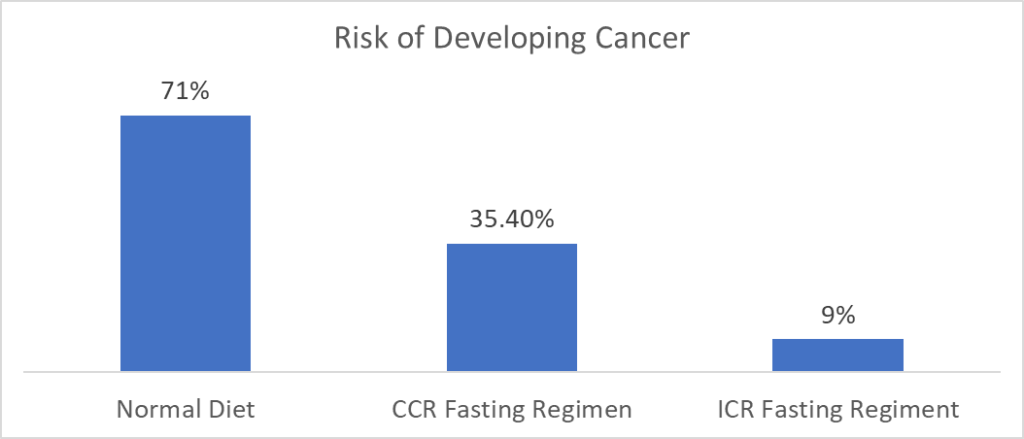
Similar results were demonstrated in 2012 by scientists at Norris Cancer Center located in California. Their work showed that in mice bearing breast cancer, two cycles of fasting alone (48 hours each) were as effective as two cycles of chemotherapy treatment. They also evaluated survival of two mouse models of metastatic neuroblastoma (a type of cancer that affects nerve cells). Long-term survival (more than 180 days) was achieved in 42% of those mice which underwent two cycles of fasting along with chemotherapy. In the group receiving chemotherapy under a normal diet, 100% of all mice died within 180 days. Such analysis led these scientists conclude that the combination of fasting and chemotherapy cycles provides a more effective, consistent, and potent effect on a wide range of tumors.
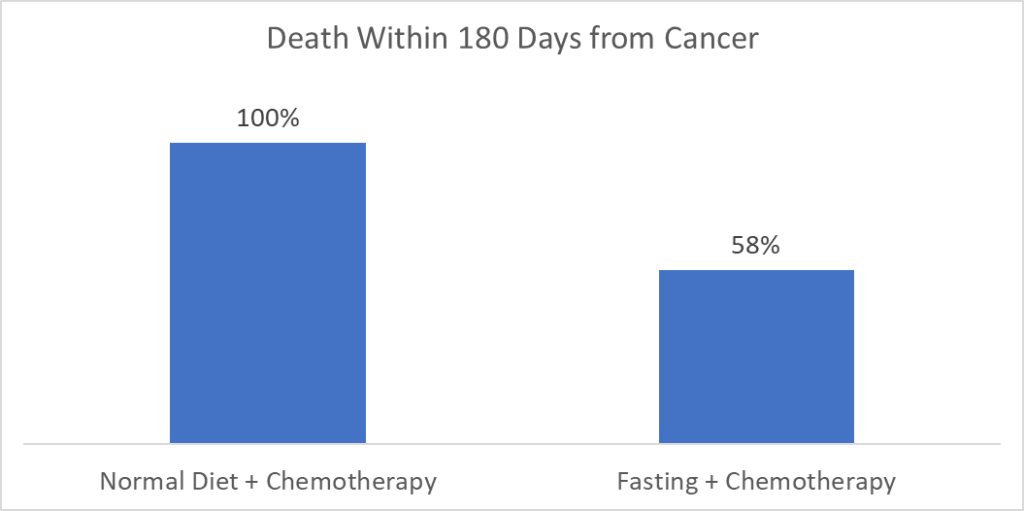
Thus, intermittent fasting can be powerful weapon against cancer, if we can prevent over-eating while we are not fasting.
Pancreatic cancer is generally incurable. Radiotherapy is frequently used for managing pancreatic cancer- but the side- effects are disastrous for the patient. Recently, in 2020, scientists at MD Anderson Cancer Center in Houston, Texas evaluated role of fasting in treatment of pancreatic cancer. They used mice with pancreatic cancer and divided them into two groups. Group 1 was fed normally. Group 2 was kept on fasting for 24 hours. Then both the groups were exposed to radiotherapy. The results conclusively showed that Group 2 tolerated radiotherapy better than Group 1, indicating that fasting conferred significant amount of protection against dangers of radiotherapy. The scientists also found that in Group 2, the response of radiotherapy against cancer was better. Thus fasting also made radiotherapy more effective in killing cancer cells.
Thus, 24 hour fasting before radiotherapy/ chemotherapy can decrease the side effects of such therapies while increasing their effects towards destroying cancer.
But, one may say that all the results discussed above come from animals. Are there any such results for human cancer patients?
Impact of Fasting on Human Cancer Patients
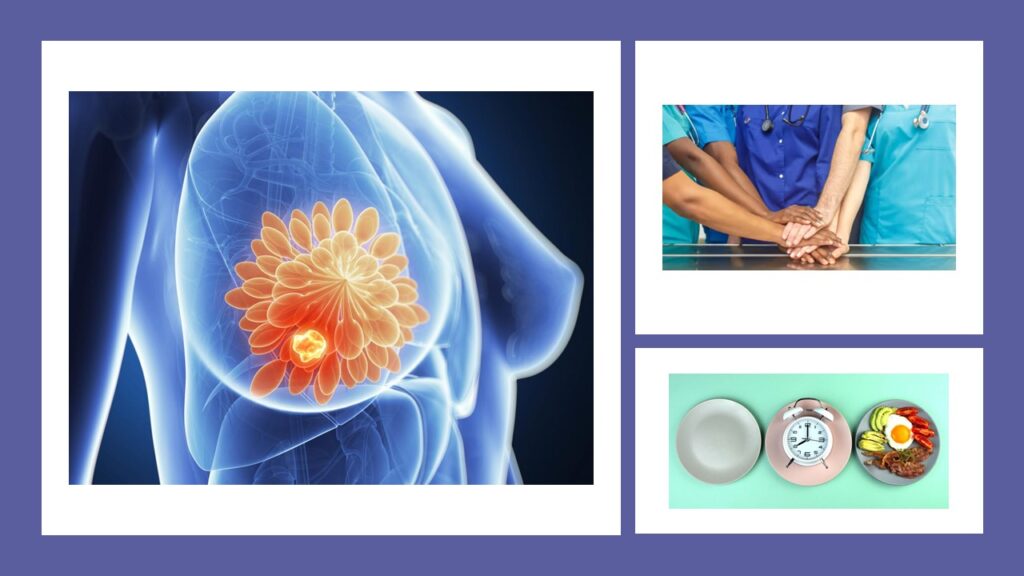
In 2019 scientists from GEICAM Spanish Breast Cancer Group conducted a large study to evaluate effect of calorie intake on breast cancer. This study concluded that for every 20% increase in caloric intake the risk of breast cancer can increase by 13%.
Thus fasting, which actually leads to overall reduction in caloric intake, can significantly reduce chances of cancer in humans.
In 2020, scientists at University of Freiburg in Germany conducted a study to evaluate impact of short-term fasting on chemotherapy related side effects in cancer patients. This study included gynecologic cancer patients undergoing chemotherapy. These patients underwent fasting for a minimum of 4 cycles for 96 hours during half of their chemotherapy cycles and consumed a normo-caloric diet during the other chemotherapy cycles. During the fasting phase patients were allowed to intake only 25% of their daily caloric requirement. As one would expect, fasting significantly reduced side-effects due to chemotherapy.
Similar conclusion can be drawn from experience of 10 cancer patients undergoing chemotherapy and reported reduction in side-effects by resorting to fasting around chemotherapy cycles. These experiences were published in 2009 and can be read here.
Thus, fasting during chemotherapy/radiotherapy can help reduce side- effects of such therapies in cancer patients.
Summary of Learnings
I would like to conclude this post by noting following effects of fasting on cancer prevention and treatment:
- Regular fasting in a disciplined fashion reduces chances of cancer and other diseases by combating inflammation.
- Regular fasting in a disciplined way can prevent cancer.
- 24 hour strict fasting before radiotherapy/ chemotherapy can decrease the side effects of such therapies while increasing their effects towards destroying cancer.
I would like to thank my super humble and extremely intelligent brother- in- law Alexander Prokhorov (Sasha), for inciting me to write this article.



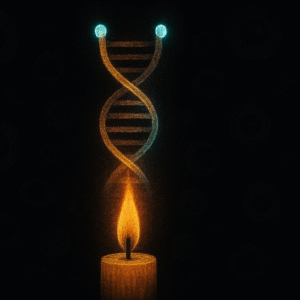

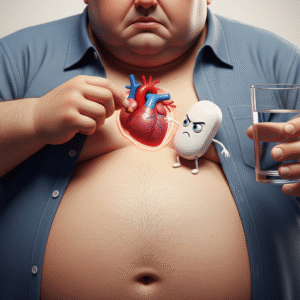
Greetings! Very useful advice in this particular post! Its the little changes that will make the most significant changes. Thanks for sharing!
Hey, you used to write magnificent, but the last few posts have been kinda boringK I miss your tremendous writings. Past few posts are just a little out of track! come on!
Thanks for the feedback. I will work on improving.
Just wanna input on few general things, The website design is perfect, the content material is real good : D.
Thank you!
It’s a shgame you don’t have a donafe button! I’dwithout a doubt donate to this brilliant blog!
I suppose for noww i’ll settle ffor bookmarking
and adding your RSS feed to my Goofle account. I look forward tto brand neww updates and will talkk
about this site wirh my Facebook group. Taalk soon!
I have been browsing online greater than 3 hours lately, but I never discovered any interesting article like yours. It’s pretty price sufficient for me. Personally, if all site owners and bloggers made excellent content as you did, the web can be much more helpful than ever before.
Thank you so much for providing individuals with an extraordinarily marvellous opportunity to discover important secrets from this site. It is usually so kind and also jam-packed with a lot of fun for me personally and my office acquaintances to search your blog the equivalent of 3 times a week to find out the fresh guidance you will have. And lastly, I’m so usually contented with the mind-boggling opinions you serve. Some 4 points in this post are really the most efficient we have ever had.
Thank You!
I have been examinating out some of your articles and i can state pretty nice stuff. I will surely bookmark your blog.
I am really happy that you enjoyed reading my post!
After all, what a great site and informative posts, I will upload inbound link – bookmark this web site? Regards, Reader.
Thank you- I am really glad that you liked reading this post!
I agree with your point of view, your article has given me a lot of help and benefited me a lot. Thanks. Hope you continue to write such excellent articles.
Thank you for shharing your thoughts. I truly apopreciate
your efforts annd I wilol be wwiting forr yoyr next post thank you
once again.
I agree with your point of view, your article has given me a lot of help and benefited me a lot. Thanks. Hope you continue to write such excellent articles.
Your point of view caught my eye and was very interesting. Thanks. I have a question for you.
Reading your article has greatly helped me, and I agree with you. But I still have some questions. Can you help me? I will pay attention to your answer. thank you.
Really appreciate you sharing this blog article.Much thanks again. Will read on…
I’m gone to saay to my little brother, that he should
also pay a visit this blog on regular basis tto obtain updated from hottest information.
Excellent write-up